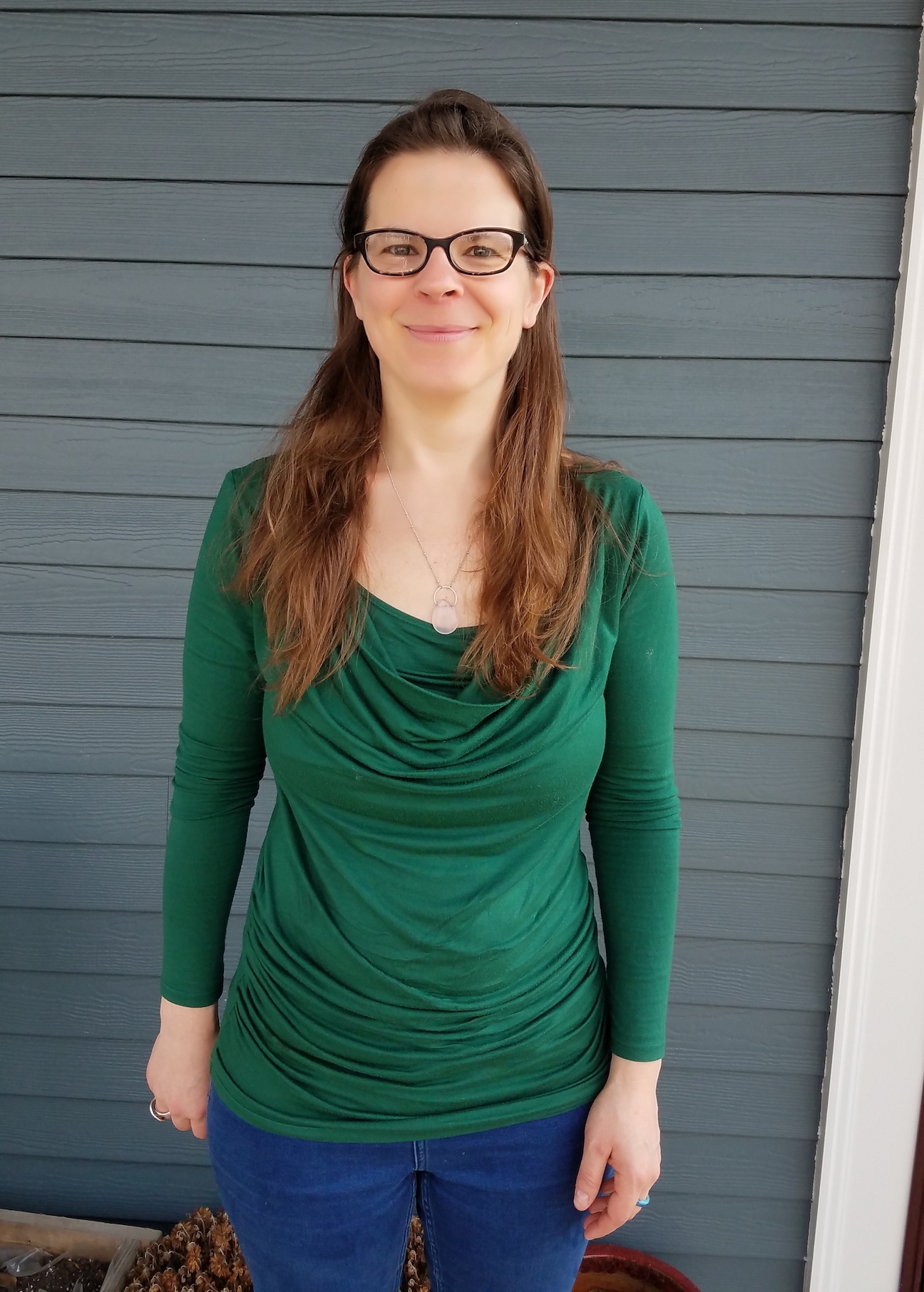 Professor Margaret Beck of Boston University was recently named the first recipient of the AMS Joan and Joseph Birman Fellowship for Women Scholars.
Professor Margaret Beck of Boston University was recently named the first recipient of the AMS Joan and Joseph Birman Fellowship for Women Scholars.
Professor Beck’s broad research program has focussed primarily on using tools originally developed to understand finite dimensional dynamical systems to better understand the behavior of partial differential equations. Within this general area she has studied models as diverse as systems of reaction-diffusion equations (for instance, models of cardiac tissue), viscous conservation laws, and fluid equations like the Navier-Stokes equations.
Some of Dr. Beck’s best known work concerns "snaking bifurcations’’. These are typically intertwined, s-shaped bifurcation branches of localized roll structures in which the spatial width of the pattern increases as one moves along the bifurcation branch by accreting more and more rolls to the structure. In a beautiful paper published in the SIAM J. Math. Analysis, Beck and her collaborators showed that this process could be completely understood in terms of the bifurcation structure of fronts which connect the trivial background state to the roll pattern.
A second strand in Professor Beck’s research has been the study of the multiple time scales present in weakly viscous fluids and related systems. The time scales over which fluids evolve are of great physical importance. Often the origin of these time scales is not obvious from a naive inspection of the equations themselves. An example of this phenomenon is the presence of metastable structures in such flows. These are features of the flow which appear on time scales much shorter than the viscous time scale but which once they emerge tend to dominate the subsequent evolution of the system. Beck has brought to bear on these questions sophisticated techniques from kinetic theory like hypocoercivity, as well as more traditional dynamical systems methods like invariant manifold theory. Dr. Beck’s paper on the use of invariant manifolds to understand metastability in Burgers equation was selected for republication in SIAM Review as a part of the SIGEST series, for which papers are "chosen on the basis of exceptional quality and potential significance to the entire SIAM community" according to the SIAM website.
Another major aspect of Professor Beck’s research has been the understanding of the stability of localized solutions of nonlinear partial differential equations. In a recent series of papers, she and her collaborators, have established the stability of source defects in pattern forming systems. Many partial differential equations have spatially periodic stationary states or traveling waves. However, in real systems, these periodic structures often contain localized defects. In particular, source defects are temporally periodic, spatially localized solutions that connect two periodic traveling waves. Since these defects select the wave numbers of the states they connect, they serve as organizing centers for patterned solutions, making an understanding of their stability especially important. The analysis of their stability is complicated by the fact that the linearization about such a defect tends to propagate localized perturbations far from the original location of the defect. In order to prove the stability of such structures Professor Beck and her collaborators undertake a delicate analysis which involves constructing a correction to the perturbed solution to approximate the effects of this delocalized perturbation, and by this means they can prove that sufficiently small perturbations of such states will approach an exact source defect solution as time goes to infinity.
In a further study of stability theory, Professor Beck's interest has recently turned to the Maslov index. A first step in understanding the stability or instability of localized structures in partial differential equations is an analysis of the spectrum of the linearized equation. The Maslov index offers possibility of extending results which have heretofore been limited to systems in one spatial dimension to higher dimensional systems.
The Birman Fellowship is only the latest in a series of awards recognizing Professor Beck’s research. Prior honors include an NSF Post-doctoral Fellowship, a Sloan Fellowship, and selection as a Kavli Fellow of the US National Academy of Sciences.
Dr. Beck will use the fellowship’s stipend of $50,000 to partially fund a full year sabbatical including participation in the MSRI program on "Hamiltonian systems, from topology to applications through analysis’’ and to travel to the University of Sydney to pursue her research on the Maslov index.
Congratulations, Margaret, from the Dynamical Systems SIAG!